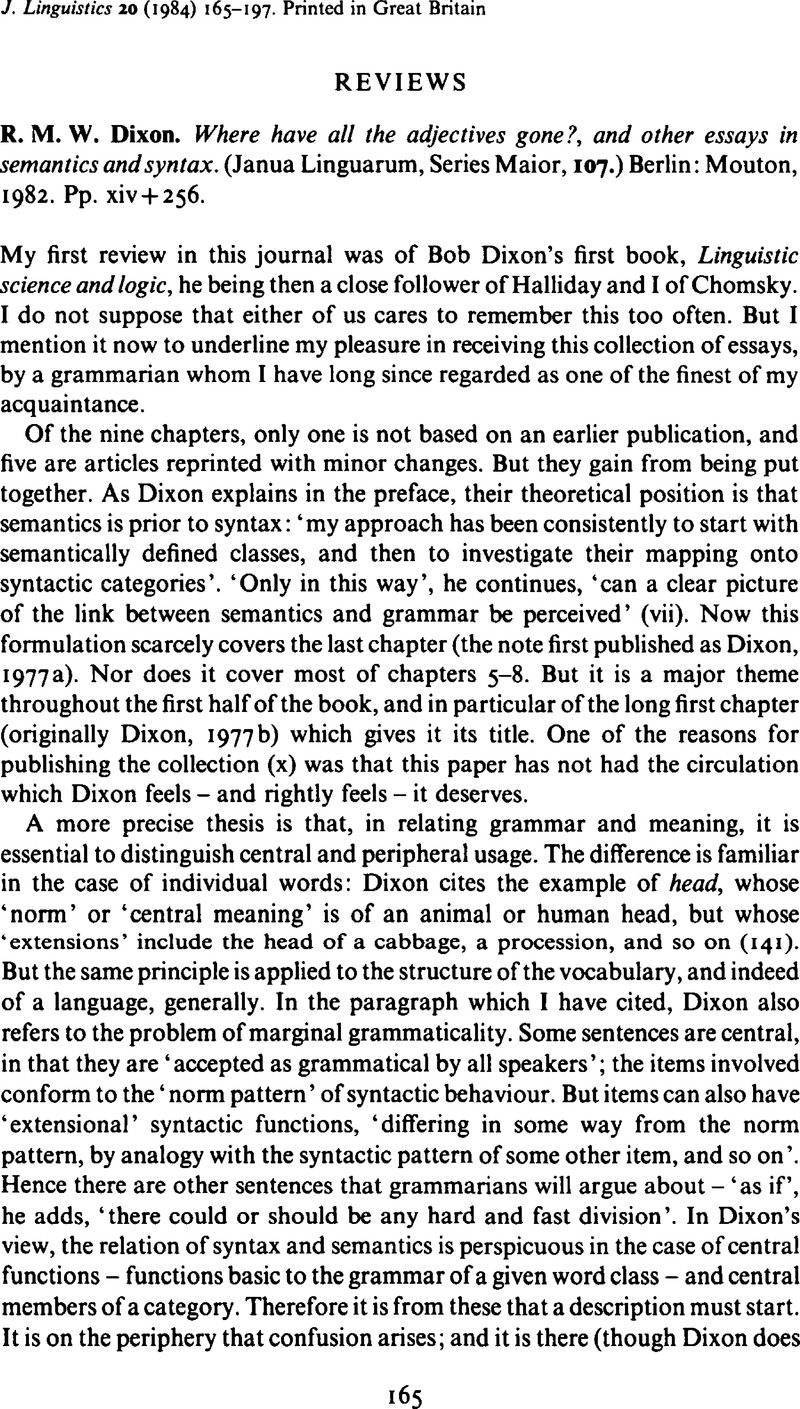No CrossRef data available.
Article contents
R. M. W. Dixon. Where have all the adjectives gone?, and other essays in semantics and syntax. (Janua Linguarum, Series Maior, 107.) Berlin: Mouton, 1982. Pp. xiv+256.
Published online by Cambridge University Press: 28 November 2008
Abstract
An abstract is not available for this content so a preview has been provided. Please use the Get access link above for information on how to access this content.

- Type
- Reviews
- Information
- Copyright
- Copyright © Cambridge University Press 1984
References
REFERENCES
Dixon, R. M. W. (1973). The semantics of giving. In Gross, M., Halle, M. & Schützenberger, M. P. (eds), The formal analysis of natural languages. The Hague: Mouton.Google Scholar
Dixon, R. M. W. (1977a). Semantic neutralisation for phonological reasons, LIn 8. 599–602.Google Scholar
Dixon, R. M. W. (1977b). Where have all the adjectives gone? Studies in Language I. 19–80.CrossRefGoogle Scholar
Dixon, R. M. W. (1977c). A grammar of Yidin. Cambridge: Cambridge University Press.CrossRefGoogle Scholar
McCawley, J. D. (ed.) (1976). Notes from the linguistic underground. New York: Academic Press.CrossRefGoogle Scholar
Rosenbaum, P. S. (1967). The grammar of English predicate complement constructions. Cambridge, Mass.: MIT Press.Google Scholar
Steinberg, D. D. & Jakobovits, L. A. (1971). Semantics: an interdisciplinary reader in philosophy, linguistics and psychology. Cambridge: Cambridge University Press.Google Scholar




